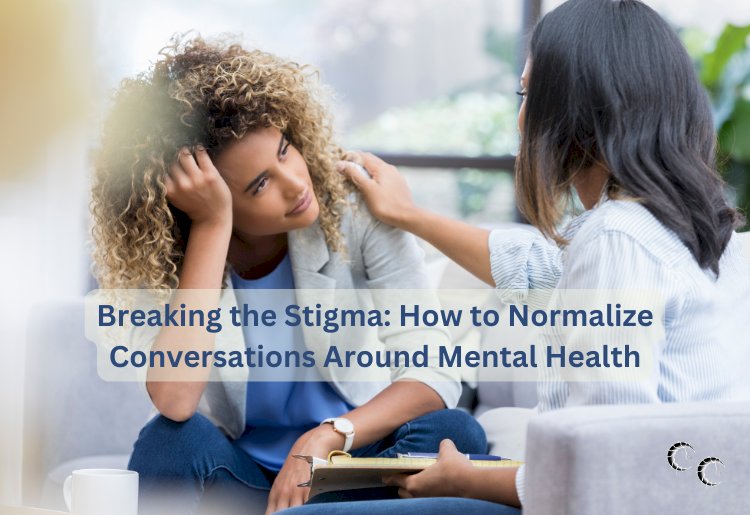Breaking the Stigma: How to Normalize Conversations Around Mental Health

Mental health is an integral part of overall well-being, yet it remains shrouded in stigma and misunderstanding. Many people feel hesitant to discuss their struggles or seek help due to fear of judgment or discrimination. By normalizing conversations about mental health, we can create a culture of acceptance, understanding, and support. Here are some actionable ways to break the stigma and foster healthier discussions.
Acknowledge the Stigma
To tackle the problem, it’s essential to first recognize it. Societal misconceptions and negative attitudes about mental health discourage individuals from opening up about their experiences. This silence perpetuates harmful cycles of shame and isolation. By acknowledging that stigma exists, we can better address its root causes and work toward solutions.
Educate Yourself and Others
Education is one of the most powerful tools for breaking down stigma. Take the time to learn about mental health conditions, their symptoms, and their impact on individuals. Share this knowledge with others to dispel myths and misconceptions. For example, you might explain that mental health struggles are not a sign of weakness but a part of the human experience. Promoting resources such as mental health organizations, helplines, and educational materials can also empower others to seek help when needed.
Encourage Open Dialogue
Creating a safe and supportive environment is key to normalizing mental health conversations. Foster open dialogue by encouraging others to share their feelings without fear of judgment. Use empathetic and inclusive language to show that you care and are there to support them. If comfortable, consider sharing your own experiences to demonstrate vulnerability and openness. Doing so can inspire others to break their silence and find solace in mutual understanding.
Challenge Stereotypes and Bias
Stereotypes about mental health issues often contribute to the stigma. If you hear someone perpetuating harmful myths or using dismissive language, don’t hesitate to speak up. For example, if someone says, “People with depression just need to try harder,” counter this with facts about how mental health conditions require proper treatment and support. Advocating for fair treatment and understanding helps create a more inclusive culture where mental health is treated with the same importance as physical health.
Support Mental Health Advocacy
Mental health awareness campaigns and advocacy efforts play a vital role in reducing stigma. Participate in events like World Mental Health Day or share positive mental health content on social media. Encourage workplaces, schools, and community groups to adopt mental health initiatives. By supporting these efforts, you amplify the message that mental health matters.
Be a Listening Ear
Sometimes, the best way to support someone is simply to listen. When a friend or family member shares their struggles, offer your empathy and attention without giving unsolicited advice or minimizing their experience. Phrases like “I hear you” or “That sounds really tough” can go a long way. Encourage them to seek professional help if they feel overwhelmed, but let them know you’re there for them throughout their journey.
Normalize Seeking Help
Seeking help for mental health should be as normalized as going to the doctor for a physical ailment. Therapy, counseling, or medication are not signs of failure—they are tools for healing and growth. Share stories of individuals who have benefited from mental health support, and emphasize that asking for help is a sign of strength.
Create Mental Health-Friendly Spaces
Workplaces, schools, and social groups should be environments where mental health is prioritized. Advocate for policies that promote work-life balance, stress reduction, and access to mental health resources. Supporting initiatives like mental health workshops or employee assistance programs can help create a culture of care and acceptance.
Promote Self-Care and Wellness
Openly discussing self-care practices can encourage others to prioritize their mental health. Share tips for managing stress, practicing mindfulness, or building resilience during challenging times. Self-compassion is especially important—remind others that it’s okay to have bad days and that taking time to recharge is essential for long-term well-being.
Reflect on Progress
Breaking the stigma around mental health is a long-term effort, but progress is worth celebrating. Reflect on the changes you’ve seen in your own circles, whether it’s a friend feeling comfortable enough to seek therapy or a workplace implementing mental health days. These milestones are evidence that the conversation is shifting, one step at a time.
By addressing stigma head-on and fostering open, empathetic discussions, we can make mental health an everyday topic of conversation. Together, we can build a society that values understanding, compassion, and support for all.






























